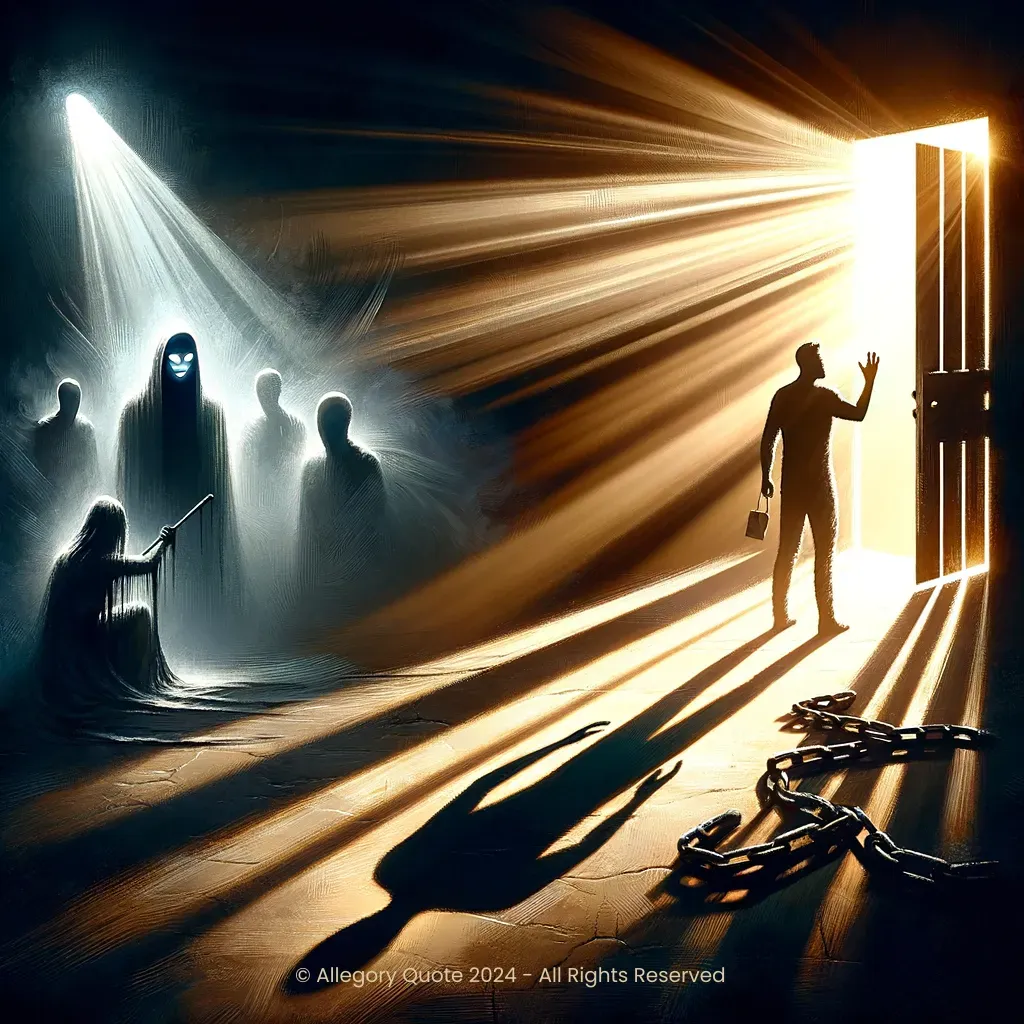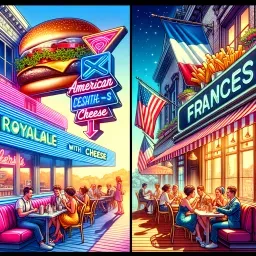Bring out the gimp

0
0
0
0
- Meaning
- The phrase has a strong connotation and is associated with the themes of power dynamics and the darker aspects of human behavior present in the film. It reflects the idea of bringing something—potentially dangerous or taboo—into the open, causing viewers to confront discomforting realities. Philosophically, it invites contemplation about consent, freedom, and the grotesque in relation to relationships and confrontations.
- Allegory
- The allegorical image captures the essence of 'Bring out the gimp' by illustrating the moment of revelation and confrontation of hidden truths. The dimly lit room symbolizes the darkness of taboo subjects, while the opening door represents the decision to confront these elements head-on. The figures demonstrate the human tendency to either shy away from or face uncomfortable realities, symbolizing the film's exploration of power dynamics and societal themes.
- Applicability
- In daily life, this phrase can serve as a reminder to address uncomfortable truths or situations instead of avoiding them. It can be applied to interpersonal relationships where honesty and transparency are necessary, encouraging individuals to face challenges rather than shy away from them.
- Impact
- 'Bring out the gimp' has had a significant impact on popular culture, encapsulating the essence of the edgy, confrontational dialogue found in Tarantino’s films. It has inspired discussions written about the film's approach to violence and sexuality and has become a memorable catchphrase that evokes the film's complex interplay of character dynamics.
- Historical Context
- The phrase originates from the 1990s, specifically linked to the film's release in 1994. 'Pulp Fiction' was a pivotal work in the New Hollywood era that marked a resurgence in independent cinema in America. The film, known for its nonlinear storyline and rich dialogue, brought forth many cultural references and insights into societal issues of that time.
- Criticisms
- The phrase has drawn criticism for its portrayal of violence and the normalization of abusive scenarios, especially related to sexual subjugation. Some argue that it trivializes serious issues, while others interpret it as a metaphor for deeper societal themes.
- Variations
- The phrase does not necessarily have meant variations in other cultures, but the theme of confronting taboo or hidden aspects of life can be seen in various cultural sayings that discuss facing the truth. For example, the Japanese proverb "The nail that sticks out gets hammered down" addresses social conformity versus individualism.
-

This is a tasty burger!
-

We’re gonna be like three little Fonzies here. And what’s Fonzie like? Cool.
-

I don’t remember asking you a goddamn thing!
-

I’m gonna get medieval on your ass.
-

I just shot Marvin in the face.
-

You know what they call a Quarter Pounder with Cheese in Paris?
-

Be cool, Honey Bunny.
-

Zed’s dead, baby. Zed’s dead.
-

I want you to go in that bag and find my wallet.
-

I love you, Honey Bunny.
-

Do you know what they call a Royale with Cheese?
-

I'm sorry, did I break your concentration?
No Comments